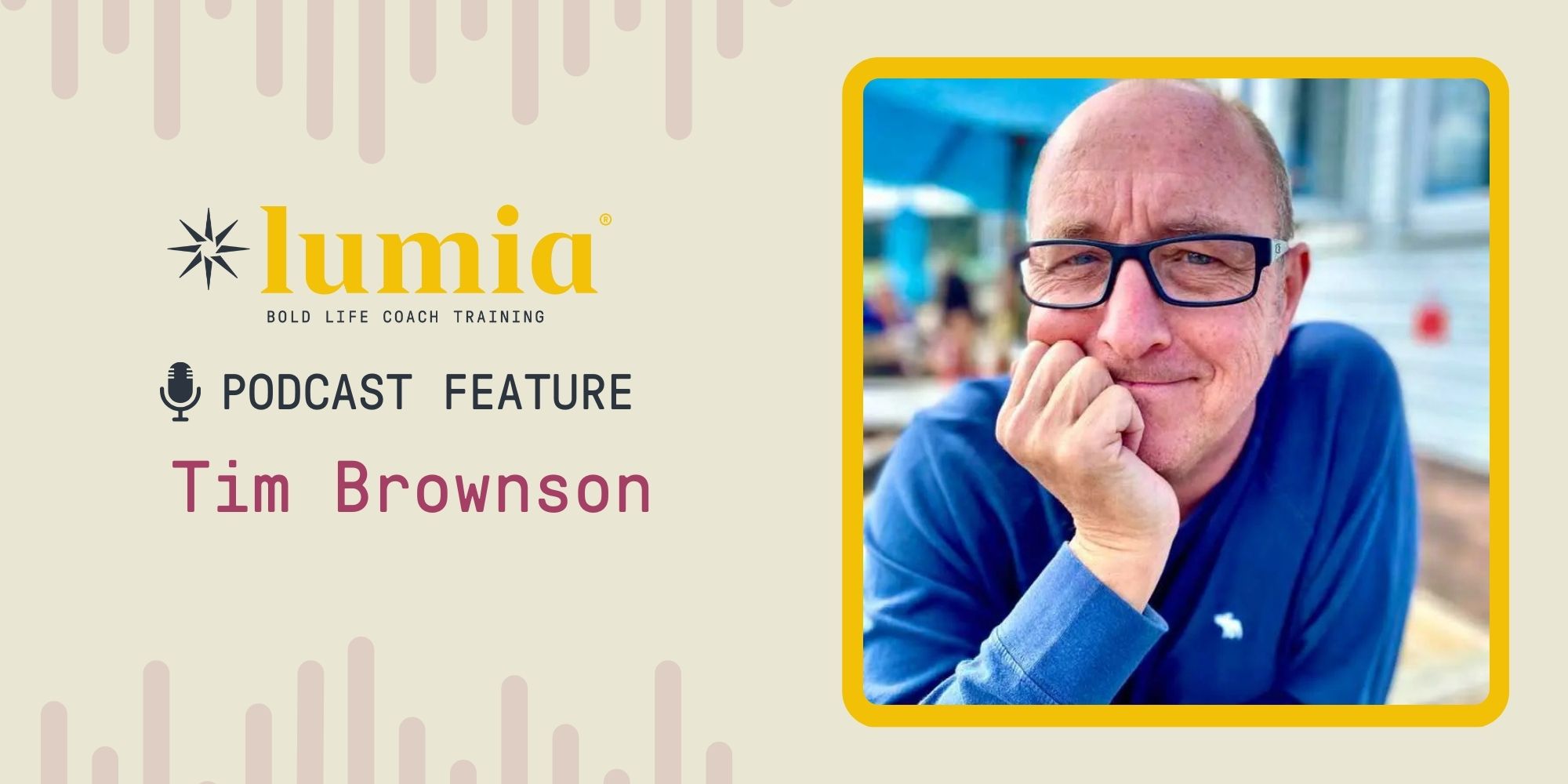Embodiment: From Disembodiment to Awareness in Coaching and Positive Psychology
Discover the science behind embodiment, and what roles self compassion and positive psychology play in helping us live a life of meaning.
The Everything Life Coaching Podcast, hosted by Lumia Coaching founder and CEO Noelle Cordeaux, is a deep dive into the experience and business of being a life coach. Subscribe to get new episodes weekly!
Embodiment: From Disembodiment to Awareness in Coaching and Positive Psychology
Noelle Cordeaux is CEO and co-founder of Lumia Coaching. In this podcast episode, she shares her deeply personal and transformative journey of embodiment through the lens of coaching and positive psychology. This is more than a recounting of personal experiences but a dive into the intricate science supporting the discipline of embodiment – and the intricate connection it has to the work of professional coaching.
The Beginning of Noelle’s Coaching Journey
Noelle’s experience with anorexia, bulimia, binge eating disorder, and body dysmorphia severely limited her ability to see and experience her own body in its true form. This detachment, where her body felt like an entity meant for societal consumption rather than a part of her, fueled her initial foray into coaching.
When Noelle launched her own coaching practice, she was initially focused on weight loss, but quickly realized that approach did not align with her own core values or the deeper issues at play.
The discovery of the International Coaching Federation (ICF) and the science of applied positive psychology marked a turning point in her work, shifting focus towards body confidence and the profound relationship between our bodies and our psychological well-being.
That is where I landed in terms of my own coaching practice helping people to understand: What happened in my life? What are the social constructions that have limited me? What else is there? And where do I want to go now? - Noelle Cordeaux
Theoretical Foundations and Personal Transformations
Noelle’s coaching journey evolved from a niche in health coaching to a broader, more impactful goal: fostering body confidence.
This shift was significantly influenced by Barbara Fredrickson's work on objectification theory, which illuminated how societal norms disrupt our ability to experience joy and flow by making us overly conscious of how our bodies are perceived by others.
Understanding Embodiment Through Positive Psychology
Embodiment, or the awareness and responsiveness to our bodily sensations, thoughts, and emotions, emerged as a key area of focus for Noelle’s coaching practice.
Positive psychology, particularly the work of researchers like Kate Hefferon, provided a framework for understanding well-being within our bodies through hedonic (pleasure-seeking) and eudaimonic (meaning and self-realization) perspectives.
This approach highlighted the importance of balancing achievement, contentment, and pleasure in our lives—a balance often skewed towards achievement in Western culture.
A positive psychology based intervention that we can help our clients, our friends, or ourselves to use is to really start to make friends with the somatic sensations that you're experiencing. Use them as a gauge to enhance your functioning. That's that feeling that I'm talking about – hearing, seeing, skin sensation, touch, taste, all of it –really getting to know your senses and letting them tell you what is going on in your life? – Noelle Cordeaux
A crucial aspect of Noelle’s work involves encouraging individuals to engage deeply with their sensory experiences as a way to enhance well-being and contentment.
This could be as simple as noticing the colors of the leaves, the warmth of the sun, or the sounds around us. By inviting our senses to the forefront, we can reframe our experiences and open ourselves to a fuller, more embodied way of living.
More Resources:
Embodiment: How to Create More Possibilities with Positive Psychology
The Connection Between Positive Psychology and Life Coaching
Addressing Disembodiment and Reconnecting
The pandemic exacerbated feelings of disembodiment for many people, highlighting the urgent need for reconnection with our bodies and with each other.
Social media and the digital age have further complicated our relationship with our bodies, often leading to a disconnection from our authentic selves.
Through coaching, we can advocate for a compassionate approach to self-awareness and body consciousness. Techniques like positive self-touch and engaging in social interactions that promote synchrony and compassion can significantly boost our sense of well-being.
Moreover, practices like yoga and dance not only improve physical health but also foster a deeper connection with our bodies.
Self-Compassion as a Tool for Transformation
Self-compassion, a concept championed by Kristin Neff, is another powerful tool in our journey towards healing and embodiment. It allows us to approach our struggles with kindness and understanding, recognizing that suffering is a part of the human experience.
As we navigate the complexities of our relationship with our bodies, let us remember to meet ourselves with compassion and curiosity. The journey to embodiment is not just about improving our physical well-being but also about embracing our humanity, with all its imperfections and vulnerabilities.
More Resources:
Self Compassion is a Coaching Superpower
How To Apply Positive Psychology to Your Life Coaching Practice
Considering A Career as a Coach?
Launch your coaching practice right! Check out Lumia Life Coach Training - a program that's every bit as unique as you are. Grounded in science, our ICF accredited program features authentic instructors, a robust curriculum, and fellow students dedicated to becoming a force for good in the world of coaching.
Lumia Coaching: Vibrant community. Evidence-based life coach training. Lifetime support.





.png)